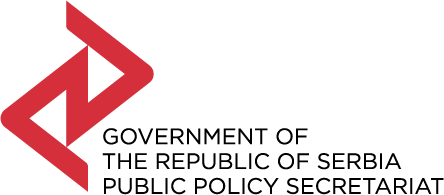Panel “Business environment and digitalized public services: achievements and challenges” was held within the Kopaonik Business Forum 2023 on Tuesday, 07 March 2023. The representatives of the state administration and the private sector debated on the digitalisation of public services, namely Mihailo Jovanović, Minister of Information and Telecommunications of the Government of the Republic of Serbia, Borko Drašković, Director of the Republic Geodetic Authority, Dragana Ilić, Corporate Affairs Director, Cetin, Radenko Radan, CEO, Saga NFG and Dušan Milićević, CEO, Comtrade System Integration. Bojana Tošić, Director of the Public Policy Secretariat, was the panel moderator.
At the panel, it was pointed out that according to the latest World Bank’s global report which comparatively monitors the progress in the field of digital transformation in 198 economies of the world, Serbia is the 11th ranked globally, that is, the 4th ranked in Europe. The 0.895 value of the GovTech Maturity composite index secured Serbia’s progress on the global list by 40 places compared to 2020, thus positioning Serbia in convincing first place in the region, but also ahead of Austria, Spain, Germany, the United Kingdom, and many other highly developed countries.
According to the Citizen Engagement Index (CEI) which measures the aspects of public participation platforms, citizen feedback mechanisms, open data, and open government portals, Serbia ranked the 3rd in the world behind South Korea and Estonia with a value of 0.979.
In this report, Serbia is positioned in group “A”, i.e. in the group of global leaders in the field of digital transformation, both in relation to the value of the composite index of digital governance maturity, and in relation to each of the individual indices assessing the extent in which the key systems and technical-technological catalysts of digital transformation are provided, together with the provision of digital services, adequacy of regulations and policies, level of digital skills, but also the existence of mechanisms for digital interaction and involvement of citizens and the existence of other important prerequisites.
The Minister for Information and Telecommunications, Mihailo Jovanović, explained the importance of ultra-fast communication network, the improvement of digital and cloud infrastructure, whether communication between businesses/citizens and administration is facilitated and what 5G technology brings us.
Borko Drašković, Director of the Republic Geodetic Institute, spoke about the hacker attack on the Cadastre, which was the first public register to experience and endure a hacker attack last year. We learned how the data was defended and what it meant for the state, businesses and citizens, and to what extend the data was really at risk. He emphasized the use of Cadastre’s new services and information based on digitized registers by the businesses and its importance in doing business. He underlined that the digitalisation of the cadastre has advanced and presented future plans in establishing the cadastre of underground infrastructure and lines, the future improvements, as well as the cadastre reform objectives and when the full effects of this complex reform could be expected.

